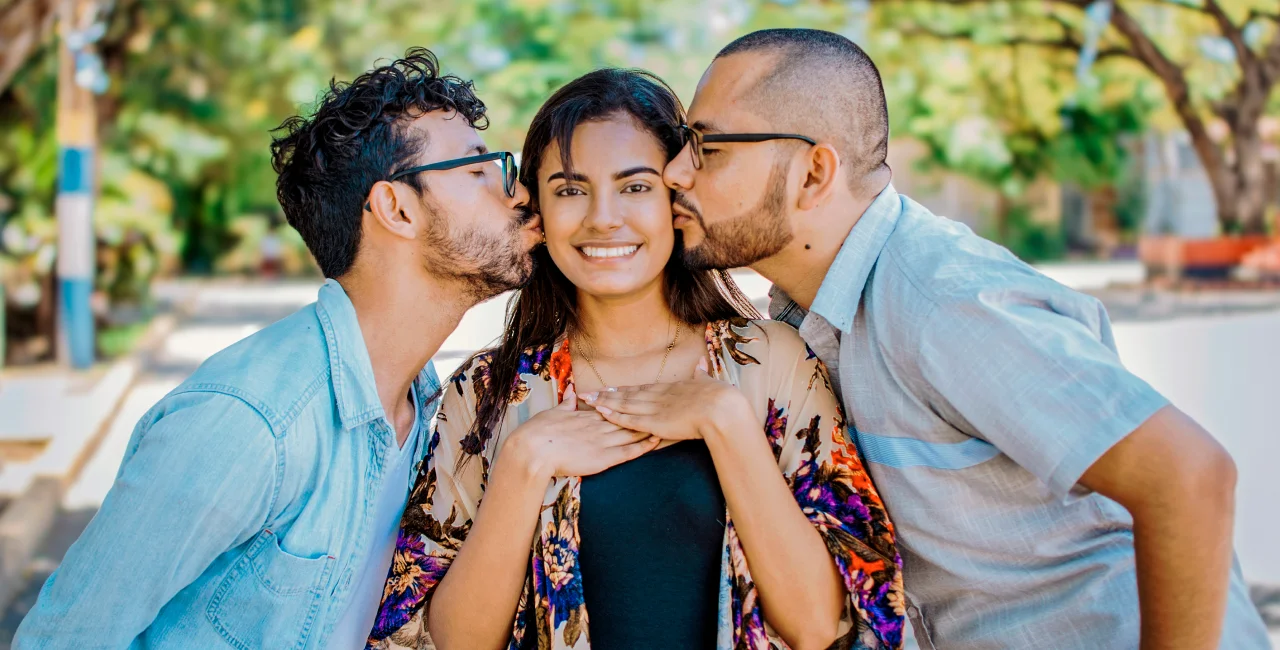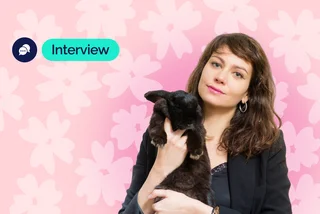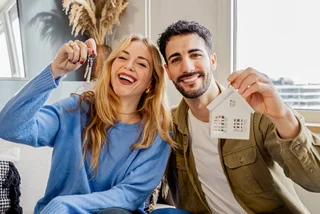Often misunderstood and mixed up with other romantic or intimate liaisons, polyamorous relationships are becoming more accepted as an alternative form of finding love and happiness.
Say “polyamory,” and most people will get the wrong idea, picturing lascivious meetings and gatherings, promiscuous swingers’ clubs, and libertine circles of uninhibited free love – if they don’t simply think it’s a fancy and dishonest term to justify or condone infidelity.
PARTNER ARTICLE
That is not what polyamory is about. Helene*, a 40-year-old French expat in Prague and mother of two, is doing what she can in her free time to dispel the numerous misconceptions surrounding polyamorous relationships.
Trust and honesty
Every story is different. For Helene, the premises were set from an early age, with her high school boyfriend with whom she alternated, over ten years, periods of strictly monogamous relationship with agreed-upon intervals of non-exclusivity.
“I later met the man who would become the father of my children and stayed with him for 10 years,” she tells us. “I first suggested to him the possibility of having multiple romantic relationships as a preventive measure, wanting to avoid the lies and deceit if he were, as I feared he might, considering he often lied, to go looking elsewhere. But he didn’t want this arrangement”.
Helene’s personal experience with her parents, now divorced after prolonged periods of infidelity, evidently played a role in her “preventive” insistence on honesty and transparency.
Since their separation five years ago, Helene has been in a polyamorous relationship with several partners, including one in France and another in Prague, finding happiness and fulfillment in a way she hadn’t before.
Contrary to the U.S. or some Western European countries, the concept of polyamory is relatively new and still broadly misunderstood in Czechia, both among Czech and expat communities.
Based on trust, honesty, and transparency, polyamory relationships involve the possibility of building two or more romantic and intimate relationships. What separates it from open relationships or “friends with benefits” arrangements is that they’re not only designed to fulfill sexual needs or overcome a lack of intimacy but to nurture meaningful relationships with several partners.
Polyamorous relationships can take a wide variety of forms – depending on the existing relationships, living arrangements, or presence of children, among other factors – but the principal pillars of it are honesty and communication.
Multiple love
“If we’re in a long-term relationship, it’s completely normal to love our partner, but we’re also attracted to other people,” psychotherapist Markéta Šetinová told Elle.cz.
“The question is then what to do with it. We can choose fidelity and monogamy. Or try it differently, perhaps with more people. Those who gravitate towards polyamory often say that love doesn’t have to be exclusive. And if we have more romantic relationships, it can enrich us," Šetinová says.
Those positively inclined towards polyamory insist that it’s a more honest alternative to so-called “serial monogamy,” which can often lead to infidelity (a study found over 40 percent of people in Czechia were unfaithful to their partner in the past year), as well as a more mature arrangement between consenting adults aware of the limits of monogamy.
For Helene, it’s also – quite literally – about not putting “all your eggs in one basket.”
“Being in a polyamorous relationship avoids one key pitfall: being completely dependent – emotionally, sexually, sometimes also financially – and giving too much power to one single person. And conversely, avoiding assuming too much power for yourself”, she says, comparing it to the relationship equivalent of the separation of powers, key for any functioning democracy.
“When you lose that person, you lose virtually everything. Not in a polyamorous relationship, where different partners may offer you different, complementary things, giving you more freedom and flexibility to fall back on your feet when a situation changes or evolves”.

The topic is not without controversy and has found its fair share of opponents, some of them looking down on it as a cowardly escape to avoid the commitments of a healthy monogamous relationship or arguing that, though it may work for a while, it cannot function in the long-term.
“Instead of working on ourselves and on the relationship itself, we form a relationship with several people with whom we can never be in such an intimate relationship as with one,” according to Lenka Procházka, a relationship coach.
Coming out
Advocates of a live-and-let-live approach assert that everyone should be free to choose the type of relationship that suits them best at various times.
Šetinová, who is also the founder of the liberal-minded individual and couples therapy center Modern Love Institute, confirms that they get many people – about 25 percent - in alternative relationship forms.
“For us, the most common are clients in open relationships, but we do also work with people in polyamorous relationships,” she says, adding that she and her colleagues often help their clients deal with the stigma associated with different forms of so-called “ethical non-monogamy.”
The practice is gaining ground, with some highlighting the growing appeal of alternative forms of relationship for younger generations, including millennials and Gen Zs, unconvinced by what they see as the increasingly shaky and hypocritical norm of doomed marriages.
In Czechia, which has a divorce rate of 38 percent, the topic has gained greater visibility in recent years, with a bit of help from some celebrities and public figures who openly “came out” as polyamorous.
One of them was Tereza Těžká, the now 28-year-old married actress better known for her role in the award-winning V Síti documentary, who three years ago announced on social media.
“I have three partners. And I want to approach all my relationships in the same way. I’ve reached the point where I know I have nothing to be ashamed of. I chose a different lifestyle in which I can have multiple romantic relationships simultaneously, a lifestyle that doesn’t hurt anyone and suits me and my partners," Těžká says.
To break down myths surrounding polyamorous relationships, she added: “We do everything that normal, monogamous couples do,” only in multiple combinations.
Polyamorous meetings
It’s not necessarily all clear sailing either, and polyamorous relationships – like any romantic liaisons – can also come with their share of struggles, including the difficulty of juggling with the demands of multiple relationships at once or dealing with feelings of jealousy or comparative neglect.
However, even though Helene admits to having faced some of these difficulties in the past, the benefits outweigh the drawbacks.
“I don’t definitely rule out getting into a monogamous relationship again in the future, but right now, I have trouble imagining it happening,” she says.
From the anthropological point of view, mankind’s dominant monogamous model is something of a rarity.
But contrary to countries where polygamy – or more precisely polygyny, where one man is allowed to take several wives but not the other way around – is legally recognized, polyamorous relationships are based on free will and equality (although some may be more or less “hierarchical,” with one principal in addition to one or more secondary partners).
Once or twice a month, Helene organizes so-called “polyamory meetings” in a café or restaurant, usually located in Prague 7, an informal and expat-friendly gathering where people come to discuss, share their experiences, or listen and ask questions about polyamorous relationships.
“You don’t have to be in such a relationship to come,” Helene insists, also reminding that conversations are usually held in English, Czech, or other languages, depending on who’s there.
“Sometimes people just come out of curiosity and to understand better what it’s about. We get the occasional attendee who mistakenly thinks it’s some dating hunting ground, but it’s quite rare,” adds Helene.
Curious? Intrigued? The next gathering will be held on Feb. 23, at the Vegtral restaurant in Prague 7. All are welcome.
*Helene's name has been changed to protect her identity.












 Reading time: 6 minutes
Reading time: 6 minutes 

























